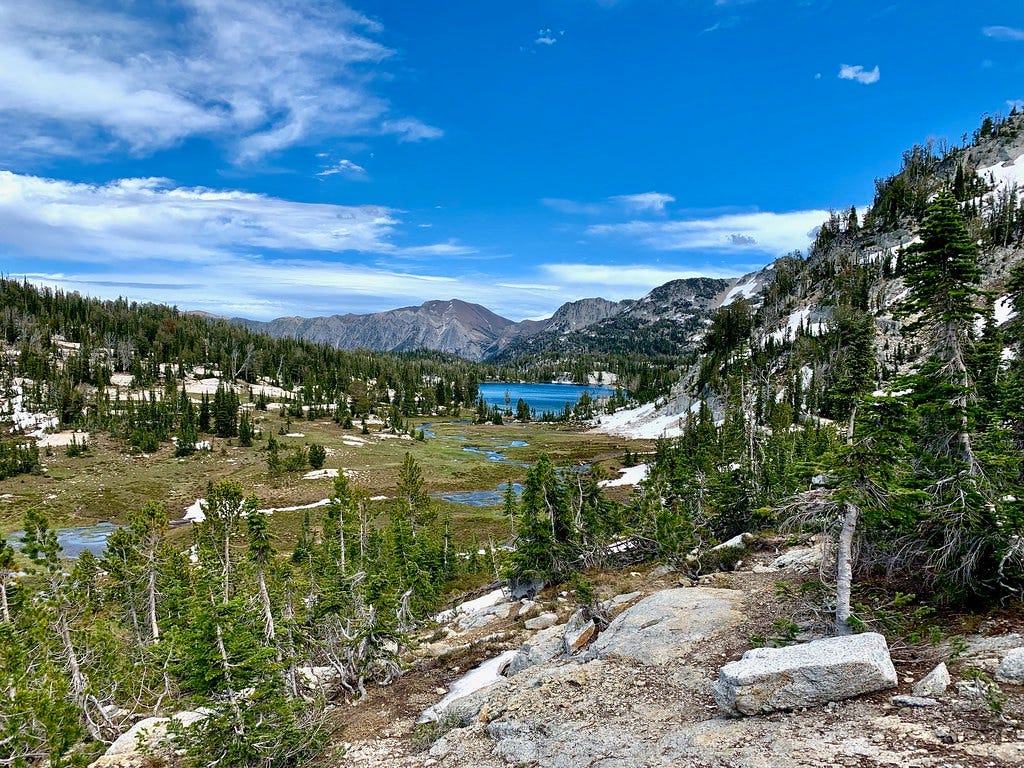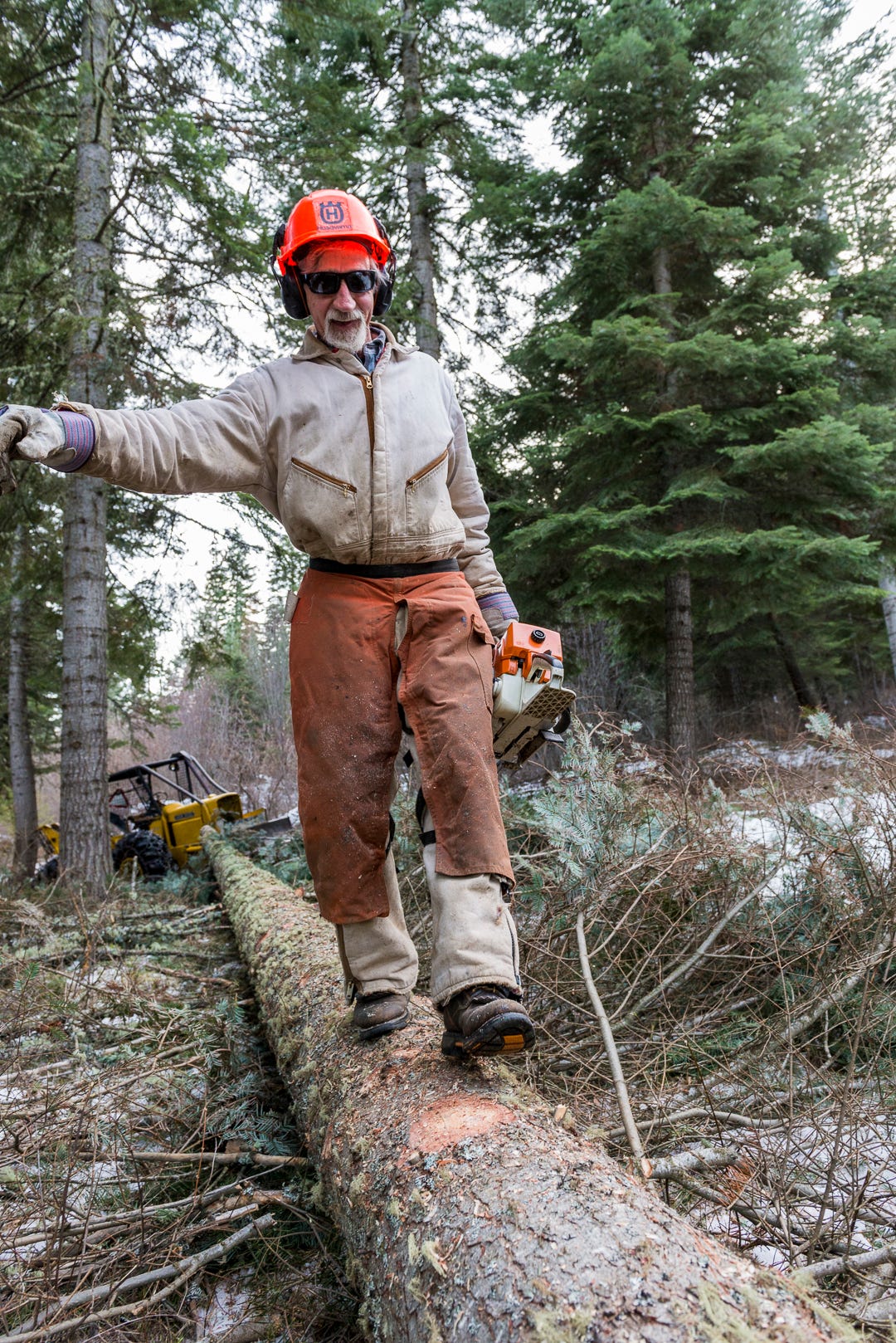Uniting Around Stewardship
The scale of the challenges facing our landscape are tremendous, but well-trained and supported land stewards can be up for the task.
The concept of “reciprocity” between humans and other biota...acknowledges a moral and practical obligation for humans and biota to care for and sustain one another…
Eric Quaempts et al, Aligning environmental management with ecosystem resilience: a First Foods example from the Confederated Tribes of the Umatilla Indian Reservation, Oregon, USA.
Oregon is blessed with a stunning diversity of ecosystems, and this wealth of natural resources has long shaped our economy, customs, and cultures. As our understanding of ecosystems improved, Oregonians have recognized the need to reinvest in conservation and stewardship - and a growing need for collaborative solutions in the face of climate change, wildfires, declining salmon populations, and other challenges.
Rural communities can play a vital role in forming those collaborative solutions by championing the stewardship of the landscapes that surround them. Recognizing and prioritizing this role will reconnect each community and family to place, and elevate their unique opportunities and responsibilities related to that place.
Stewardship work involves continuous learning on the ground. It’s the sort of learning that involves your head, heart, and hands. It emphasizes long-term husbandry and care. It produces high quality food, fiber, and energy to meet the needs of people today, while restoring and regenerating natural systems. It’s learning and work that we need to value – both in economic terms and in terms of broader public support. This vision of stewardship will be possible when place receives more attention from our elected leaders, community organizations, and neighbors.
To realize that vision we must empower our communities to be more effective stewards of the land and water on which all Oregonians depend. Public opinion polls indicate a maturation of understanding and support for win-win solutions centered on forest restoration, regenerative agriculture, renewable energy, and localized supply chains. Let’s return to, and elevate, an understanding of reciprocity, and the opportunities we have to engage in positive relations with the land as stewards.
A stewardship mentality must be adopted given the severity of the issues we’re facing. Our rural communities are highly vulnerable to climate change and extreme drought conditions. But rural land stewards are also best positioned to mitigate these challenges. Rural landowners can build soil health, protect water resources, manage resilient forests that sustain wildlife habitat, and sequester and store carbon.
All Oregonians should support and encourage land stewards in rural parts of the state. Their work has broader societal benefits that must not be overlooked. Healthy working landscapes offer meaningful benefits for local communities, but the payoffs extend to those in urban areas who consume their products and recreate in the nearby watersheds. As rural land stewards invest in the land, we need to invest in them. It is encouraging to see the Biden Administration’s recognition of the value of rural landowners and managers in tackling the greatest threats we face as a state and nation. This will pay dividends now and in the long term. We need to secure and leverage these new federal investments with state and local resources, and get this funding to the ground across Oregon – to our landowners, contractors, and community organizations.

The scale of the challenges facing our landscape are tremendous, but well-trained and supported land stewards can be up for the task. Humans have had a broad effect on the landscapes they’ve lived on that dates back for millennia. Recent studies affirm that, in many instances, active management by humans has promoted biodiversity. As Helen Macdonald articulates in her book, H is for Hawk, “The wild can be human work. It doesn’t have to be untouched by human hands.”
Stewardship also generates important economic benefits that reinforce the landscape condition and function. These concepts and values are central to Wallowa Resources vision for rural places – Stewardship Economies that draw from the skills, custom, and culture of each place. Stewardship Economies center on innovative, adaptive strategies that maintain and enhance the productivity and profitability of our working landscapes, and simultaneously sustain the quality and diversity of wildlife habitat and ecosystem services.
The Stewardship Economy is based, in part, on the recognition that private ranches, farms, and forestlands are vital to the preservation of biodiversity and habitat connectivity. Multi-generational ranchers, foresters, and farmers often possess deeply rooted knowledge and understanding of the land and waters they call home. Wallowa Resources is fortunate to work with many such people. These are the sorts of people who view the land less as something they own, and more as legacy for the next generation.
Today, as we face daunting threats to the health of our land and waters, we need this long-term perspective and direct understanding of ecology more than ever. This stewardship mentality can and will transform Oregon as a place and as an example of a sustainable economy.
Prosperous rural communities and economies are vital to the continuation of learning and innovation around effective stewardship. We need to recognize this value, and invest in these communities accordingly. One example is the restoration work that took place on Doug McDaniel’s ranch near Lostine, Oregon. Work to remeander a half-mile stretch of the Wallowa River led to benefits for all: from Doug and his family, to contractors who gained employment, to the neighbors who replicated the project, to the steelhead that quickly returned to the reach, and to the students who benefited from the project as a learning opportunity. The project resulted in dramatic habitat improvements that continue to benefit deer, elk, beaver, cottonwoods and many more native species that each, in turn, provide their own benefits to the human and ecological communities of this place.
We must ensure that there is a next generation equipped with similar skills, inspiration, and opportunities as Doug to be stewards themselves. Our species will always have an impact on the land; let’s try to make it a net positive. We all want healthy landscapes on which our families and communities can thrive. That’s something, hopefully, that unites Oregonians.
Nils D. Christoffersen is the Executive Director of Wallowa Resources, a community non-profit working to sustain working lands and livelihoods, in Northeast Oregon.




Nils' article--and his work--is an example of bringing Oregonians together to work on shared goals. Many of my neighbors in urban Oregon would be amazed at the passion and knowledge of our rural land stewards and their working landscapes. Doug McDaniel was a quiet and effective leader in this work.
Well articulated and spot on. Thanks for your thought leadership. The Salmonberry Trail Foundation is taking these notions to heart in our stewardship. Would be great to connect.